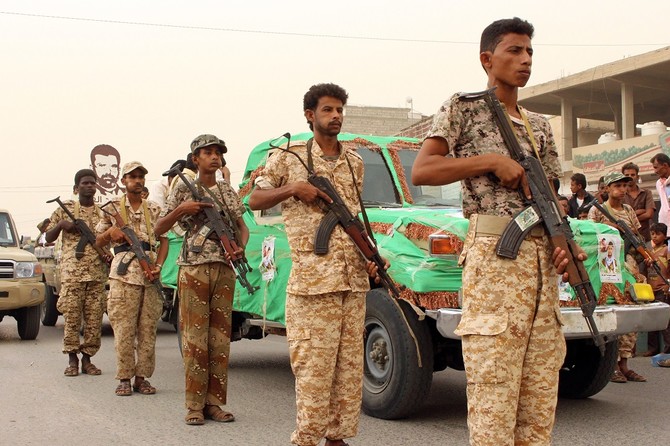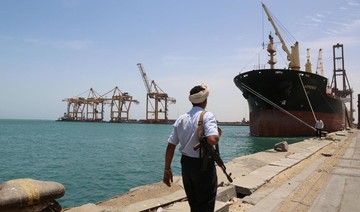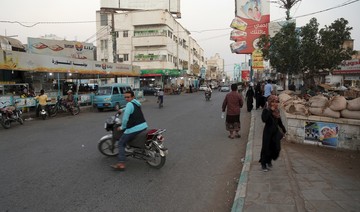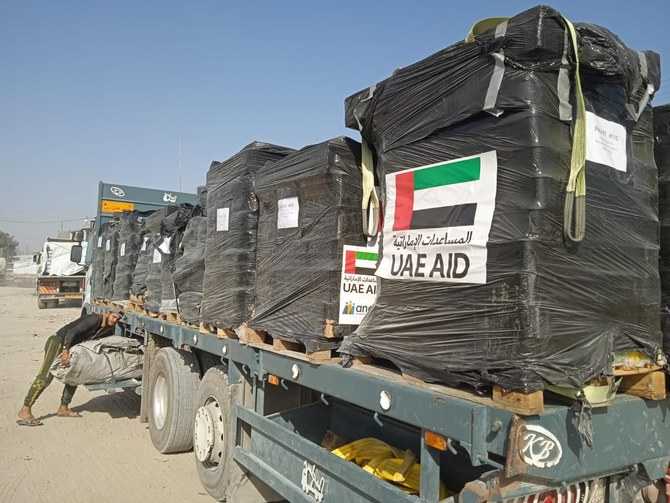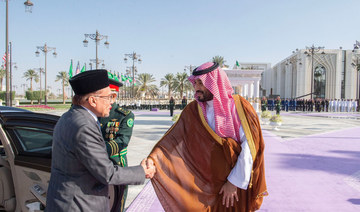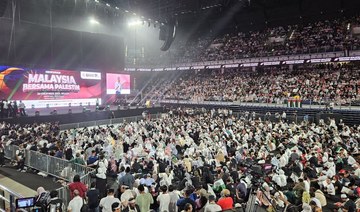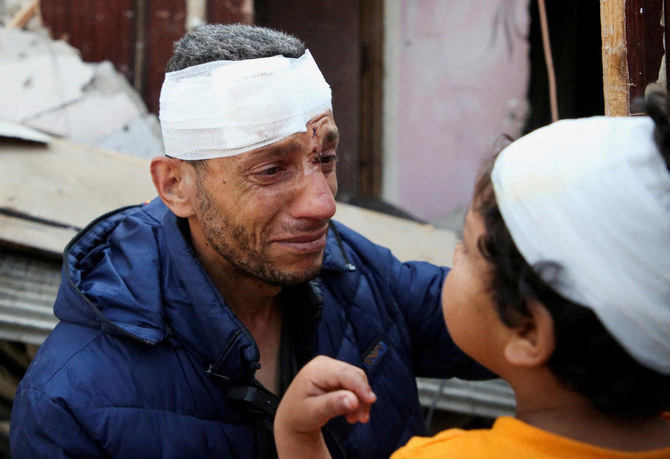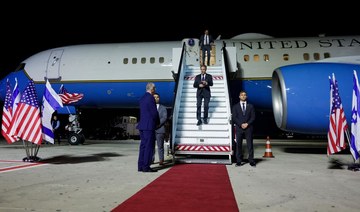DUBAI: The Houthi militia have begun to withdraw from the port of Hodeidah, the country's key aid lifeline, under an agreement reached in Sweden earlier this month, a UN official said Saturday.
The official, who requested anonymity, said that the Houthis began to pull back from the Red Sea port at midnight (2100 GMT Friday).
However, a Yemeni government source denied reports that the Houthi militia had withdrawn from Hodeidah.
The source confirmed that the statements of the Houthi militia on Saturday on their redeployment in the port of Hodeidah were attempts that they were claiming to abide by the Stockholm agreement on Hodeidah.
"We can not accept these violations, which will lead to a failure in the agreement," the source said.
The Iranian-aligned Houthis have agreed with the government to implement a ceasefire in Hodeidah province and withdraw their respective forces.
Retired Dutch general Patrick Cammaert, the head of a UN advance team in charge of monitoring the ceasefire, arrived in Hodeidah this week.
Under the deal, international monitors are to be deployed in Hodeidah and a Redeployment Coordination Committee including both sides, chaired by Cammaert, will oversee implementation. The committee started its meetings this week.
A recent report said Houthi militia fired on bulldozers of the Yemeni army during the opening of the Kilo 16 road linking Sanaa, Hodeidah and Taiz, despite both sides agreeing to open all closed humanitarian corridors from key port to the Yemeni capital.
The Arab coalition fighting to restore the legitimate Yemeni government said on Saturday that the Iran-backed Houthi militia is blocking access to a relief convoy, carrying 32 tons of flour, from Hodeidah port heading to a UN organization in the rebel-held capital Sanaa.
Spokesperson Col. Turki Al-Maliki said that the coalition’s joint forces issued the necessary permits for the relief convoy and secure its passage through the areas controlled by the legitimate government in Hodeidah after completing all the coordination with the Yemeni National Army.
However, he said the “Houthi terrorist group refused to allow the relief convoy to exit from the port of Hodeidah and secure its safety from the port of Hodeidah to Sanaa, which represents a deliberate obstruction to relief and humanitarian work.”
The coalition’s joint forces command confirmed the continued issuance of permits to all relief organizations and their movement to alleviate the suffering of the Yemeni people as well as supporting all the political efforts of the UN special envoy and the Sweden agreement.
Al-Maliki stressed that the actions of the Houthi militia constitute a flagrant violation of international and humanitarian law, relief efforts and what was agreed upon during UN sponsored peace negotiations in Stockholm earlier this month.The next UN-backed Redeployment Coordination Committee meeting is scheduled for Jan. 1 in Hodeidah.
The coalition also said on Saturday that the Houthi militia committed 14 violations in the past 24 hours, bringing the total number of breaches to 204 since the start of the ceasefire.
A truce in the rebel-held city of Hodeidah and its surroundings went into effect on Dec. 18 and is part of a peace push seen as the best chance yet of ending four years of devastating conflict.
Retired Dutch general Patrick Cammaert is heading the joint committee, which includes both government officials and Houthi rebels, and chaired its first face-to-face meetings on Wednesday.
Houthi Mines
Meanwhile, Yemen’s national army removed hundreds of mines planted by the Houthi militia on routes leading to Hodeidah, the official state news agency reported on Friday.
An official source in the Giants Brigades, a southern resistance force, said: “The demining teams began on Friday in preparation for the return of life to the city of Hodeidah and facilitate the passage of citizens after the withdrawal of the militia from the city and its ports.”
The source explained that teams managed to remove hundreds of mines and improvised explosive devices planted by the militia at the entrances to the city of Hodeidah in an operation to open safe roads for citizens to enter the city after the Houthi militia’s withdrawal.
Elsewhere, the army clashed with Houthi militia in Damt district of Dhale governorate, Saudi news agency SPA reported, where at least 25 militia fighters were killed and wounded.



